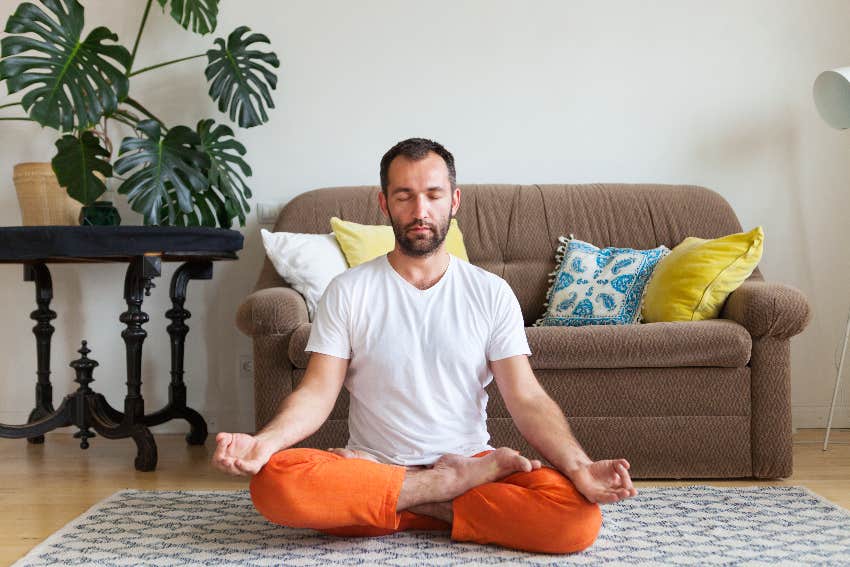Psychology Says If You Can Master These 16 Skills, You'll Stay Mentally Agile Well Into Your 80s
These mental agility skills can give you a solid boost as you age.
 MixMedia | Canva
MixMedia | Canva I always thought you needed to avoid stuff that felt uncomfortable to live a good life. Turns out comfort is great, but it’s better as a reward for living a life — with its ups and downs.
Actively taking on considered risks and ‘tough’ things (the kind of things you know deep down you need to do) always felt scary at the moment. But these were the things that brought me psychological and real-world growth and will keep me mentally agile well into old age.
If you can master these skills, you'll remain mentally agile well into your 80s:
1. Cut out a bad habit
Bad habits only hold you back, so do what you can to remove at least one entirely. A 2019 study on breaking bad habits focused on the habit loop concept, which identifies three key elements: a cue, a routine, and a reward.
This concept emphasizes the importance of successfully identifying and modifying these elements to break a habit. Strategies include changing your environment to remove triggers, replacing the bad habit with a positive one, and rewarding yourself for positive behavior changes.
2. Practice genuine gratitude
Don't underestimate the power of gratitude. Expressing gratitude is strongly linked to improved mental well-being, including reduced depression and anxiety, increased happiness, better sleep, and stronger relationships. Practicing gratitude through activities like gratitude journaling can significantly enhance these positive effects.
3. Go for a daily walk
 Roman Chazov / Shutterstock
Roman Chazov / Shutterstock
Walking benefits both your mental and physical health in big ways. A four-hour walk can significantly improve mood, reduce stress, boost creativity, enhance cognitive function, and potentially alleviate symptoms of depression.
A 2023 study showed that even moderate-intensity walking for extended periods can provide substantial mental health benefits. However, to avoid injury, it's essential to consider individual fitness levels and gradually increase walking duration.
4. Write and share poetry
According to research, poetry can improve your mental health by boosting your mood and combatting stress, depression, and loneliness symptoms. Surprisingly, it has also been found to improve work performance.
5. Donate to charity
Donating to charity can provide several advantages, including increased happiness, higher life satisfaction, improved self-esteem, a stronger sense of purpose, and even potential reductions in stress and depression. This is primarily due to the warm glow effect associated with performing a kind act for others.
6. Drop a commitment so that you focus more on less
When you over-commit, everyone loses. Selective attention leads to significant advantages, including improved task performance, better information processing, reduced cognitive overload, and enhanced decision-making abilities. Individuals can dedicate more mental resources to the key aspects of a task while filtering out distractions.
Selective attention leads to significant advantages, including improved task performance, better information processing, reduced cognitive overload, and enhanced decision-making abilities. Individuals can dedicate more mental resources to the key aspects of a task while filtering out distractions.
7. Travel by yourself
Solo-traveling may be intimidating, but it's well worth it. According to a 2013 study, traveling alone can provide significant advantages, including increased self-confidence, personal growth, improved self-awareness, better decision-making skills, and the ability to fully immerse oneself in new experiences by focusing on one's needs and desires without compromising with others.
8. Volunteer
Volunteering can provide significant advantages, such as reduced stress, increased happiness, improved self-esteem, a stronger sense of purpose, social connection, and even potential health benefits. Helping others releases dopamine and other positive chemicals in the brain.
9. Join a class you’d never have otherwise joined
Whether it's an exercise class you haven't considered before or something more creative, like pottery or painting, join a class that is outside of your comfort zone.
10. Meditate every morning for at least 15 minutes
 Ekaterina Iatcenko / Shutterstock
Ekaterina Iatcenko / Shutterstock
Start your day off right with some morning meditation. Meditating every morning can significantly improve mental well-being by providing a fresh start to the day, reducing stress and anxiety, enhancing focus and attention, boosting mood, and setting a positive tone for the rest of the day, making establishing a consistent meditation practice easier. 2021 research concluded that the most significant benefits are seen with consistent daily practice, even if it's just a short session.
11. Do heavy compound exercises three times a week
Compound exercises offer significant advantages by improving self-efficacy, body image, and overall mood. They efficiently build muscle, burn calories, and enhance functional movement patterns, leading to more extraordinary accomplishment and control over one's body during daily activities.
12. Make time for creative expression
Creative expression has the power to improve both mental and physical well-being, so flex those creative muscles. From writing and painting to playing an instrument and dancing, the options are endless. Making time for creative expression offers a range of benefits, including improved mood, stress reduction, enhanced emotional regulation, boosted self-esteem, increased cognitive function, and a greater sense of well-being.
13. Take a cold shower or lake swim
Stanford University research shows that cold water immersion (CWI) may improve mental health by increasing endorphin and norepinephrine levels. It may also decrease cortisol levels, improving resilience to stress. CWI can be adapted to meet different wellness goals, whether for immediate relief or long-term mental health benefits.
14. Journal every day
Whether you journal for yourself, work on a novel, or start a blog, make writing a habit. Writing 1,000 words daily can significantly improve mood, well-being, and self-awareness by allowing individuals to process emotions, gain clarity on thoughts, and explore their subconscious, potentially leading to better coping mechanisms and improved mental health.
15. Share a vulnerable experience
Vulnerability is an immensely powerful thing. A 2020 study concluded that sharing a vulnerable experience can significantly boost social connection, build trust, foster empathy, improve mental health by allowing for emotional processing, and enhance feelings of belonging, mainly when done with a trusted individual or within a supportive environment. A central concept in researcher Brené Brown's work emphasizes the positive potential of sharing personal experiences and emotions.
16. Ask to be interviewed
Asking to be interviewed often focuses on the social and cognitive factors that influence how individuals prepare for and present themselves during an interview. These factors include self-efficacy, impression management, anxiety, power dynamics, and the impact of framing the request on the interviewer's perception.
Alex Mathers is a writer and coach who helps you build a money-making personal brand with your knowledge and skills while staying mentally resilient. He's the author of the Mastery Den newsletter, which helps people triple their productivity.

